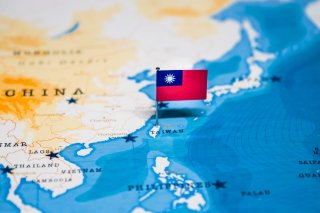The Worrisome Erosion of the One China Policy
Washington and Beijing to explicitly agree on a set of reciprocal, credible reassurance measures that will breathe life back into their original understanding regarding Taiwan.
Supposedly justified under the provisions of the Taiwan Relations Act or simply seen as a necessary “push–back” against China, many U.S. observers perceive these actions as much less dangerous than many Chinese would perceive a decision by China to launch a military assault on Taiwan. Beijing views these U.S. actions as clear steps toward ending the One China Policy and making Taiwan a full-fledged security ally. Rather than acting as a deterrent, these U.S. actions have strengthened the argument in China for doubling down on its own forms of military deterrence, such as increased military forays and exercises around Taiwan, the firing of ballistic and cruise missiles near the island, and a significant increase in China’s nuclear inventory. All in all, then, the momentum behind breaking the understanding that has kept the peace in the Taiwan Strait for nearly fifty years is stronger on the U.S. side.
Some observers call for China to begin breaking this vicious cycle by unilaterally reducing its military displays near Taiwan, thus giving the United States a strong reason to reverse its de facto weakening of the One China Policy. However, the steady, seemingly unstoppable erosion of that policy and the many supporters of such actions both in and out of the U.S. government strongly suggest that such a response is unlikely. Few even admit that the policy is being hollowed out. China might, therefore, reasonably believe that if they reduce their military pressure on Taiwan, the United States will respond to China’s perceived weakness by further hollowing out its One China Policy.
The only logical solution to this problem is for Washington and Beijing to explicitly agree on a set of reciprocal, credible reassurance measures that will breathe life back into their original understanding regarding Taiwan. To keep the peace across the Taiwan Strait, there is no viable alternative to exchanging clear, credible assurances of U.S. limits on relations with Taiwan and its implacable opposition to any unilateral move toward Taiwan independence, with China reciprocating by reiterating assurances that it rejects any timeline for unification and will end its military exercises near the island of Taiwan. Reaching this sort of agreement should be at the center of any senior-level Sino-U.S. dialogues.
Michael D. Swaine is director of the Quincy Institute’s East Asia program.
Image:

